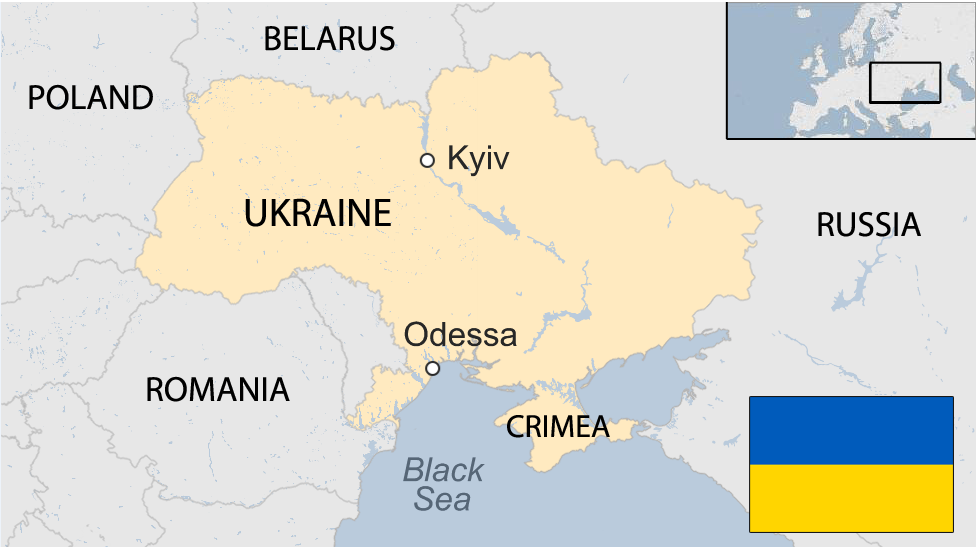Ukraine: Lawmakers end session without new PM vote
- Published
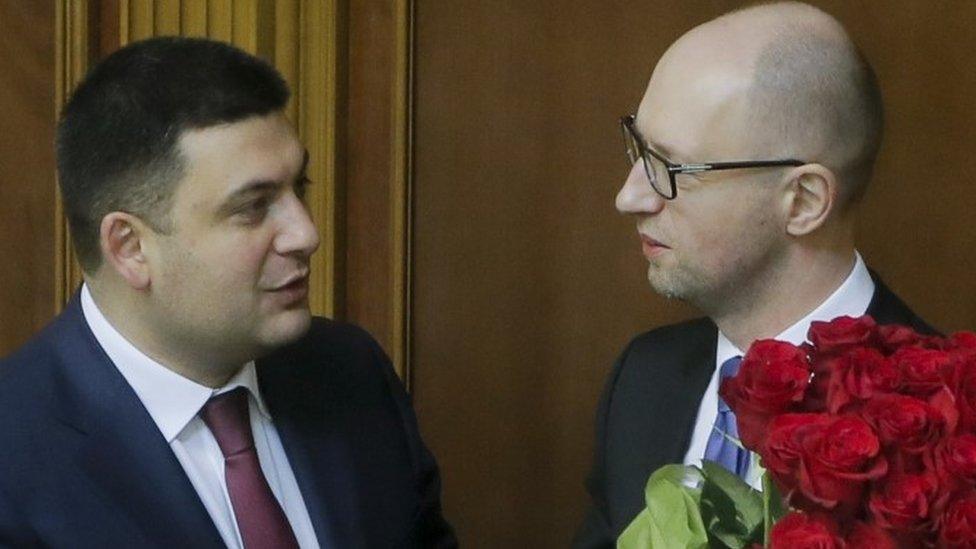
Speaker Volodymyr Groysman (left) is widely seen as PM Arseniy Yatsenyuk's successor
Ukraine's MPs have ended their session without a vote on the resignation of PM Arseniy Yatsenyuk, as intense talks over a new cabinet continue.
Mr Yatsenyuk on Sunday announced he was stepping down, with the government facing accusations of corruption and inability to implement reforms.
Parliament Speaker Volodymyr Groysman, an ally of President Petro Poroshenko, had been expected to be voted in as new prime minister on Tuesday.
A vote may now be held on Wednesday.
The fact that there was no vote on Tuesday means that the main political parties have been unable to agree on the forming of a new government under Mr Groysman, the BBC's Tom Burridge reports from the capital, Kiev.
So Mr Yatsenyuk remains, in name at least, as prime minister, our correspondent says.
Reports had emerged late on Monday that Mr Groysman would not take up the post amid disagreements over the line-up of the new cabinet.
The speaker then reportedly changed his mind but coalition partners have so far failed to resolve their differences and the negotiations continue, several lawmakers said on Tuesday.
Earlier, politicians in Mr Poroshenko's coalition said they now had enough members to back the new cabinet.
Oleksiy Honcharenko, a member of the Petro Poroshenko Bloc (BPP), told Interfax news agency there was a coalition of 226 out of the 450-member parliament.
Separately, the deputy speaker of parliament, Andriy Parubiy, told Reuters that four independent MPs had joined Mr Poroshenko's faction, enough to form a majority with Mr Yatseniuk's People's Front party.
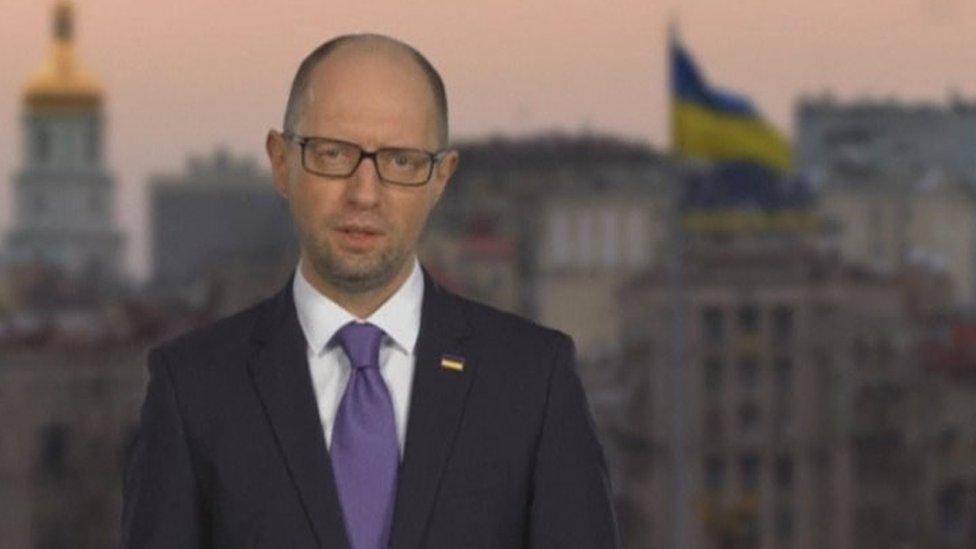
Mr Yatsenyuk said on Sunday that he would be presenting his resignation to parliament on Tuesday
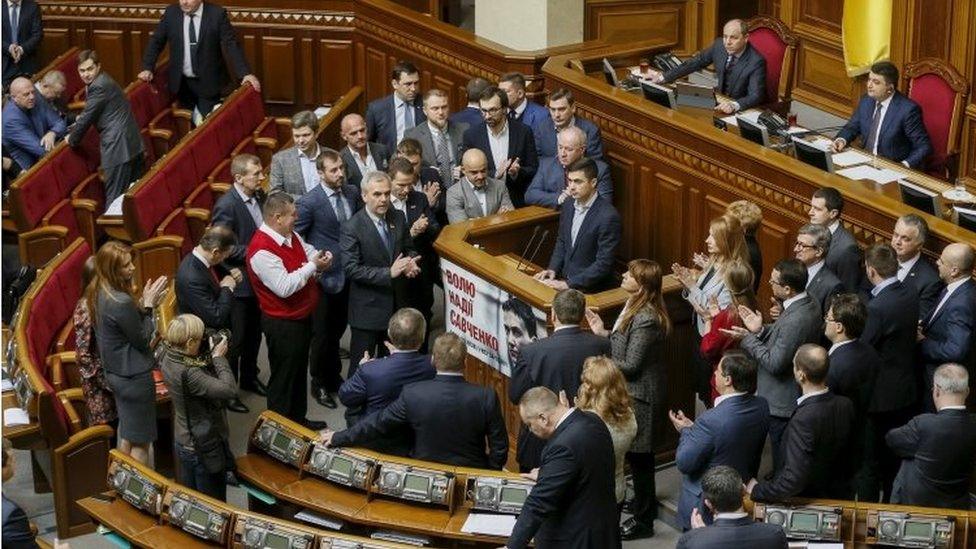
Ukraine could be set for a period of prolonged political uncertainty
If there is no progress towards the creation of a stable reform-minded government, there will be frustration in Berlin and Washington, and satisfaction in Moscow, our correspondent says.
The Western-backed reform programme of the government has stalled in recent weeks and several high-profile reformists have left the government.
Economy Minister Aivaras Abromavicius resigned more than two months ago after accusing the government of lacking commitment to end corruption.
Long list of problems
Mr Yatsenyuk has been in office since former pro-Russian President Viktor Yanukovych was ousted during huge demonstrations in February 2014.
Announcing his resignation, Mr Yatsenyuk accused Ukraine's politicians of failing to enact "real changes".
His loss of parliamentary support led to him being asked by President Poroshenko to resign in February. Although he survived a vote of confidence, he remained unpopular in opinion polls.
The International Monetary Fund has threatened to withhold aid money if Ukraine does not carry out reforms.
The government in Kiev is signed up to an uneasy truce with pro-Russian rebels in two of Ukraine's eastern regions, with frequent ceasefire violations reported.
Russia annexed the southern region of Crimea two years ago after a referendum on self-determination - a move condemned by the US and Europe.
Ukraine's ambitions to join the EU also suffered a setback on 6 April when voters in the Netherlands roundly rejected a landmark EU trade deal with the former Soviet state in a referendum.
Although the referendum was not legally binding, the Dutch government has said the deal cannot now be ratified without further discussion.
- Published12 April 2016
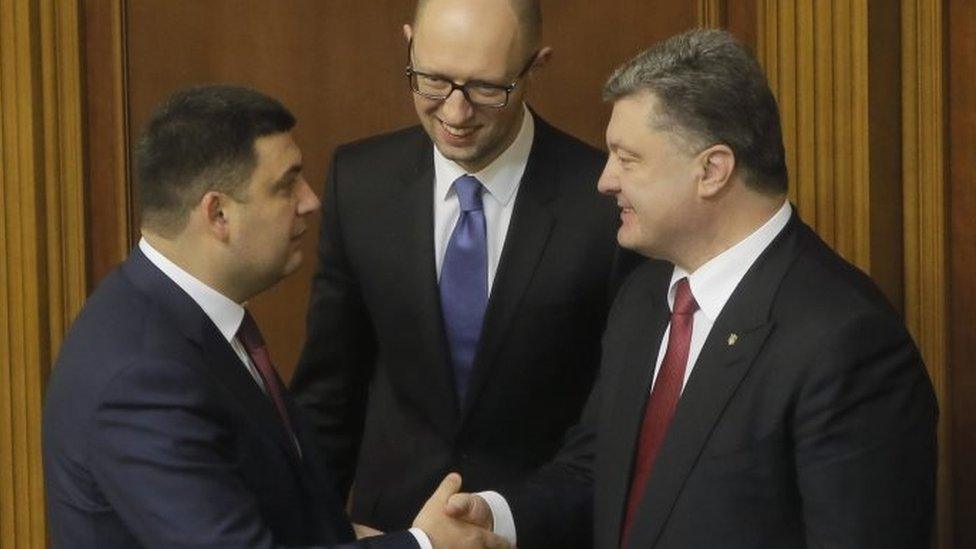
- Published7 April 2016
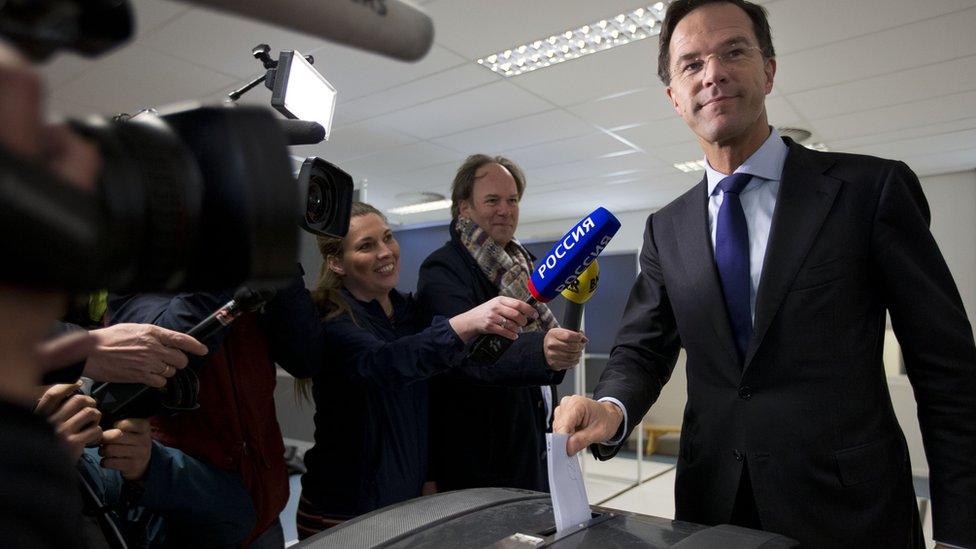
- Published27 January
